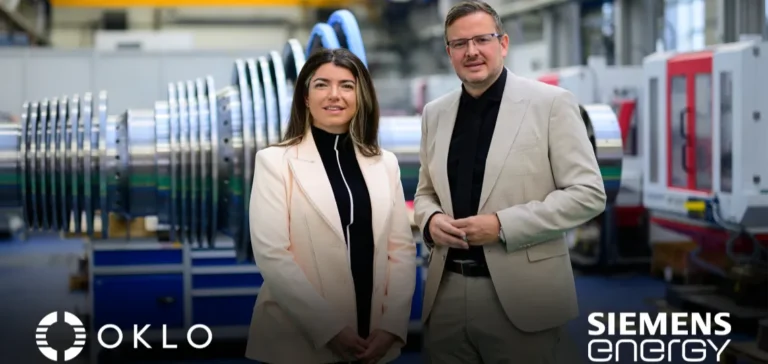US-based company Oklo Inc. has formalised a contract with Siemens Energy for the design and delivery of the power conversion system for its Aurora plant, currently under development at the Idaho National Laboratory site. The agreement commits Siemens Energy to begin detailed engineering work and to initiate procurement of critical long-lead components.
The order includes a Siemens SST-600 condensing steam turbine, an SGen-100A industrial generator, and associated auxiliaries. This system is one of the main milestones required for operational launch of the Aurora reactor, which is based on advanced fission technology. The partnership aims to secure key technical elements of the project while minimising supply chain and production schedule risks.
A key milestone in the nuclear supply chain
Under the contract, Siemens Energy will take responsibility for engineering studies and integration plans of the power conversion system into the overall plant. With Aurora already having an assigned site and fuel supply, this step completes the three logistical pillars required for commissioning: site, fuel, and power conversion equipment. Early turbine manufacturing would help maintain the project’s industrial timeline.
The partnership also reflects Oklo’s strategy of relying on proven industrial components to accelerate deployment of its compact reactor model. This approach aims to lower costs, shorten timelines, and support the standardisation of an energy product intended for broader commercial rollout.
Towards modular and replicable deployment
The Aurora project serves as a showcase for the next generation of Small Modular Reactors (SMRs), combining passive safety and standardised industrial components. Siemens Energy sees this as an opportunity to strengthen its presence in the advanced energy equipment sector, while responding to growing demand for low-carbon power.
The two companies plan a long-term collaboration to replicate this model for other similar plants in the future. The Idaho site could thus become the first step in a modular production network, designed to supply industrial sites or remote areas with high energy demand.






















